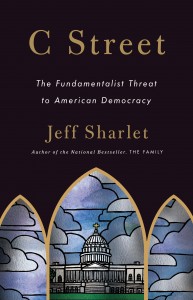The Tea Party Finds Newt’s God
This week Digby wondered if Former Speaker of the House, Newt Gingrich, is making a move to appear more Godly in order to get the Tea Party nomination for president in 2012. It’s a worthy question, now that a multitude of observers (read Jonathan Kay, Barbara Bradley Hagerty, Sarah Posner, David Dayen, Laurie Lebo, Ari Melber, Jeff Sharlet) have concluded that the religious right has successfully got its firm grip on the Tea Party. Gingrich will appear at Liberty University’s convocation today — the title of his talk is “Rediscovering God in America” — and then meet with Chancellor Jerry Falwell Jr. and others after the talk. Which all would induce a giggle — Gingrich, motivated by God?! — if we didn’t remember how skilled Gingrich is at mongering fear for power. And money.
But a more important question is this: How was it so easy for tax-loathing, live-free-or-die discontents to cede their “leaderless” movement to the long-standing insiders who have worked for self and corporate interests in the name of a “family values,” “pro-life” God? Perhaps they are not discontent with what they think they are discontent. Continue Reading →

